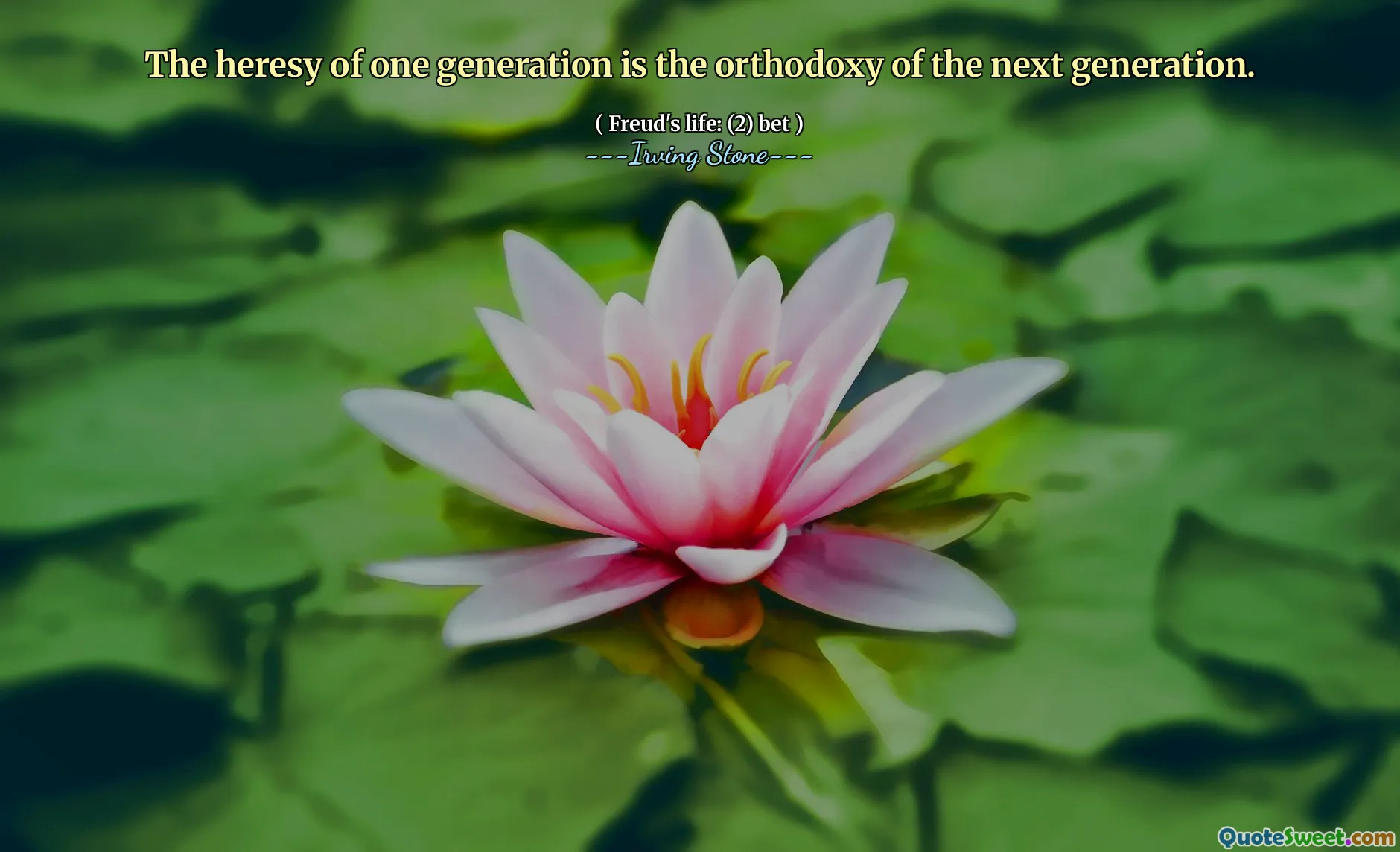
The heresy of one generation is the orthodoxy of the next generation.
This statement profoundly encapsulates the dynamic nature of cultural, intellectual, and social evolution. It highlights how ideas once considered radical, subversive, or heretical often become accepted norms or orthodox beliefs in the future. This cyclical fluctuation emphasizes the relativity of dogma and convention, suggesting that what we temporarily reject as inconceivable or wrong might later form the foundations of widespread acceptance.
The process described by this quote illustrates the transformative power of time on human thought. Typically, new generations bring different perspectives, challenging inherited paradigms and questioning the status quo. These new ideas, initially dismissed or condemned as heresies, garner acceptance as they prove their relevance or adaptability to emerging circumstances. This phenomenon is not just limited to religion or ideology but extends to art, science, politics, and social values.
The quote also carries an implicit reminder of the importance of open-mindedness and humility. If beliefs and values are a moving target, our resistance to new ideas might unjustly suppress progress or enlightenment. It encourages continuous inquiry over stagnation and suggests that societal growth depends on a willingness to reevaluate previously held convictions.
In the context of Freud's life, authored by Irving Stone, this quote situates well with Freud’s own revolutionary ideas in psychoanalysis. Freud was once criticized for his theories, which challenged established medical and psychological norms. Over time, however, many of his concepts have gained acceptance or influenced mainstream thought. This trajectory reaffirms the essence of this quote by showing how new ideas disrupt, transform, and eventually become integrated into the collective consciousness.
Ultimately, this quote invites us to acknowledge the temporal shifts in collective wisdom and to approach the unfamiliar not with immediate rejection but with thoughtful consideration. It serves as a testament to the fact that history is often written by those who once were dissidents, and the legacy of human thought is one of continuous reexamination and progressive shifts.






